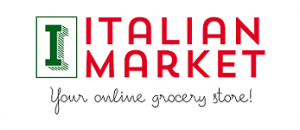(ANSA) – ROMA, 21 LUG – Held today at the United Nations Headquarters, a meeting sponsored by Italy together with Egypt and Kenya and with the collaboration of FAO and the UN Global Compact was dedicated to the theme of public-private partnerships in the digital transition to sustainable agribusiness value chains. The discussion, moderated by the Permanent Representative of Italy, Ambassador Maurizio Massari, included the institutional participation of the Undersecretary at the Ministry of Environment and Energy Security, Sen. Claudio Barbaro, as well as the Permanent Representatives of Kenya and Egypt, FAO, UNIDO, the Global Compact and the UN Secretariat. During a dynamic discussion full of interventions, the contribution of the private sector was analyzed, which thanks to its collaboration with governments and commitments on social and environmental issues undertaken in the UNIDO framework becomes an increasingly important player in achieving the goals of the 2030 Agenda, especially in the area of digitization and innovation of key human development supply chains such as agribusiness. A role underscored by the speeches of Andrea Illy of Illycaffé, Kamel Abdallah of Canal Sugar, Mario Cerutti of Lavazza, and Nushin Ghassmi of Industrial Promotion Services, companies that put sustainable development and the digitization of production processes at the center of their production strategies.
This is a collaborative approach also embraced by Italy, which, in the words of Undersecretary Barbaro, ” works together with FAO, IFAD and the United Nations system to promote responsible digitization and digital public goods, as well as the transformation of digital agriculture to ensure that technology reaches those who need it most.” In addition, he added, “we strongly believe that public-private partnerships and international cooperation are key to promoting inclusive digital transformation. Through our development cooperation programs and partnerships with the African Union and Mediterranean countries, we invest in digital literacy, rural connectivity and innovation ecosystems. We are committed to ensuring that smallholder farmers, indigenous peoples and marginalized communities are not left behind, but are empowered to co-design and co-own digital solutions.” Digitization of the agricultural sector is one of the many issues that will be brought to the attention of the international community in Addis Ababa July 27-29 during the second “United Nations Food Systems Summit Stocktake,” co-organized by Ethiopia and Italy to accelerate the transformation of food systems globally through international cooperation, finance and investment revitalization.
Read article…
Last modified: July 22, 2025




